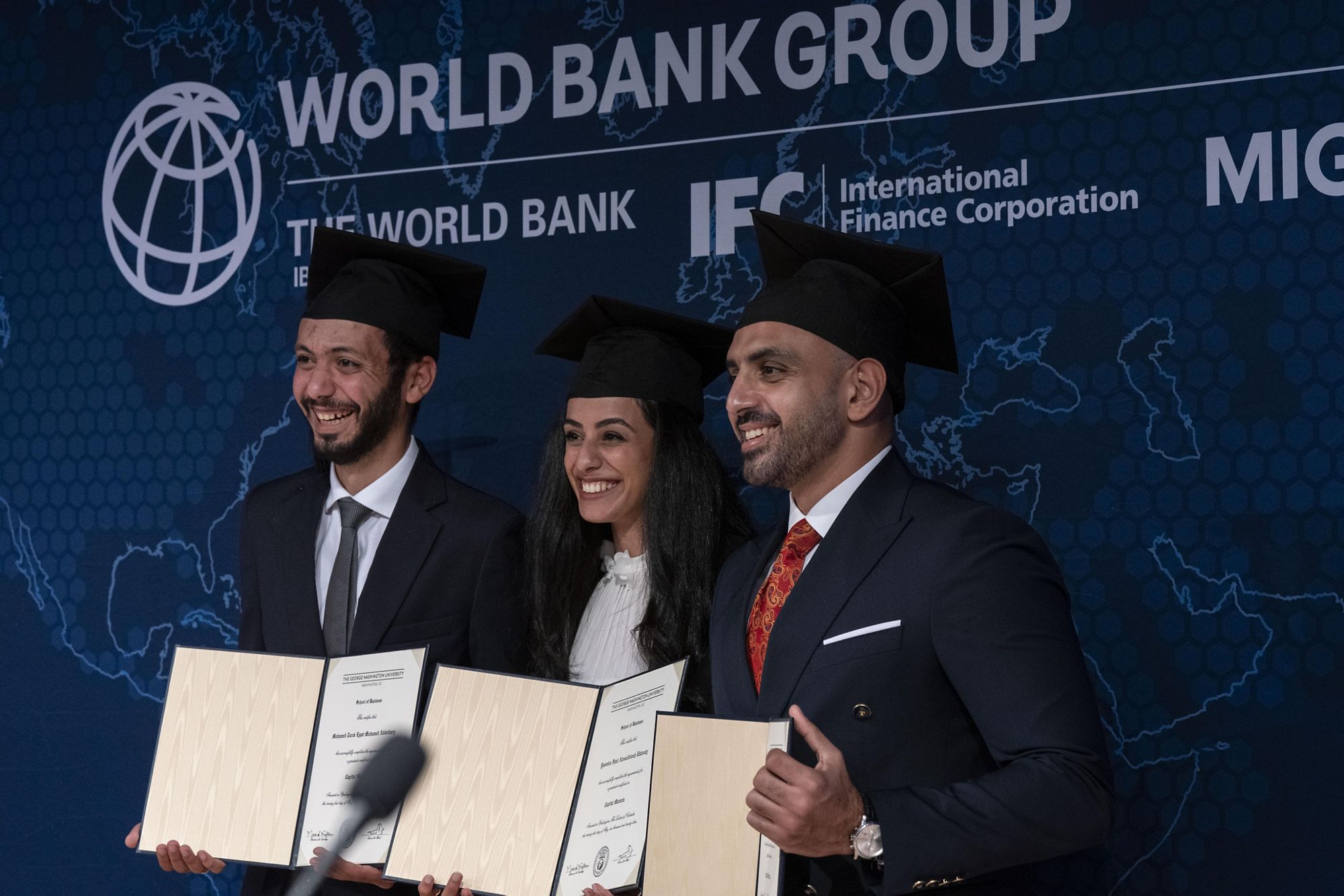Mohamed El Ashry, the Head of Money and Capital Markets Development at the Central Bank of Egypt, is one of 16 graduates of the 10th cohort of the IFC-Milken Institute Capital Markets Program (CMP), an accredited 8.5-month postgraduate certificate program.
In this interview, Mohamed shares insights about his transition from professional sports to a thriving career in finance and his experiences with the capital markets program. He also discusses his commitment to equip Egypt with the tools needed to effectively manage financial sector risks.
Tell us about yourself?
I was born and raised in Cairo, the bustling capital of Egypt. I grew up in a middle-class family and played professional handball for the Egyptian national team and for Zamalek—one of the famous clubs in Egypt. My parents instilled in me the importance of balancing sports and academics early in my childhood, a lesson that I have carried throughout my life. I was very fortunate to be raised in a family that pushed me and guided me to have this balance.
I followed a path similar to my father’s by studying for a bachelor’s degree in accounting, capital markets, and finance at Meniuofiya University. Upon completing my studies in 2010, my professional career outside of sports began as an Associate Auditor at KPMG before joining the debt management team at the Ministry of Finance as a Senior Financial Analyst. I was promoted to Deputy Head of Debt Management for domestic debt and market development, where I served for 7 years.
Mohamed joins a network of over 220 professionals from across 55 countries who have completed the program and gained advanced knowledge and skills to strengthen and develop viable and robust local capital markets.
What influenced your career choice?
My parents played a key role. My decision to transition from professional sports at the age of 21 was motivated by my growing interest in finance and the opportunities it presented. When I discovered that the Egyptian Stock Exchange, founded in 1883, is Africa’s oldest stock exchange, I was inspired to help advance this institution in a meaningful way.
I decided to follow my passion by joining the Central Bank of Egypt to build on what I had started at Ministry of Finance on debt capital market development. It is a dream come true to work at the two institutions that formulate and implement monetary and fiscal policies in Egypt that have a direct impact on the country’s economy.
Tell us more about the IFC-Milken Institute Capital Markets program?
At the height of the pandemic, I was entrusted with leading an initiative to manage equity capital markets at Egypt’s Central Bank. Despite difficult economic times, the initiative managed to increase trading activity and reduced market volatility, which helped restore confidence in the Egyptian local equity capital market. I also led the development of the new Electronic Trading Platform (ETP) for government bonds. As a result, the Governor of the Central Bank of Egypt nominated me to participate in the capital markets program.
Having learned about the program from work colleagues who praised its content and instructors, I found it to be a treasure trove of rich subjects, offering excellent reading materials and high-caliber instructors. I particularly enjoyed learning about financial crises and gaining insights into advanced data analytics skills needed for evidence-based policy making.
I was also impressed with the program’s emphasis on real-world problem solving and its combination of practical challenges and academic knowledge.
In a rapidly changing world filled with unprecedented challenges such as mounting debt, inflation, currency depreciation, and geopolitical events and natural disasters, it is imperative to have well-trained regulators and policy makers who can enact reforms to modernize the financial sector and respond to crises. This is why IFC has partnered with the Milken Institute to develop a critical mass of professionals who understand the benefits of well-functioning markets and can adapt international best practices to their local realities.
How was your internship experience with the World Bank?
The program is designed to prepare scholars for the internship. I had the privilege of interning at the World Bank with the Long-Term Finance Team in the Finance, Competitiveness, and Innovation Department. The team was supportive, and their extensive knowledge of capital markets left me with a newfound confidence. The internship offered valuable insights into long-term financing and debt management strategies.
I supported several projects, including a study of the regulatory framework in Bangladesh for employee retirement funds. I was also part of the team that drafted a diagnostic report on the local currency bond market in Indonesia based on a guidance note by the World Bank and the International Monetary Fund (IMF).
These experiences enriched my understanding of the many challenges that countries face when developing their capital markets, which mirror the challenges Egypt faces. I walked away with a greater understanding of how to apply reforms to develop local currency bond markets, reduce budget deficits, and combat inflation.
How do you plan to use this knowledge and experience in Egypt?
I intend to apply the knowledge and skills I have gained to my work at the Central Bank of Egypt. I plan to collaborate with the World Bank and IMF to assess gaps and challenges in Egypt’s capital markets using their guidance notes. I will continue to work on improving the regulatory framework, especially in derivatives and money markets.
I hope these efforts will play a key role in helping my country hedge against risks, such as interest rates, currency fluctuations and commodity prices, making Egyptian bonds more attractive to investors and freeing up government resources for other vital activities.
